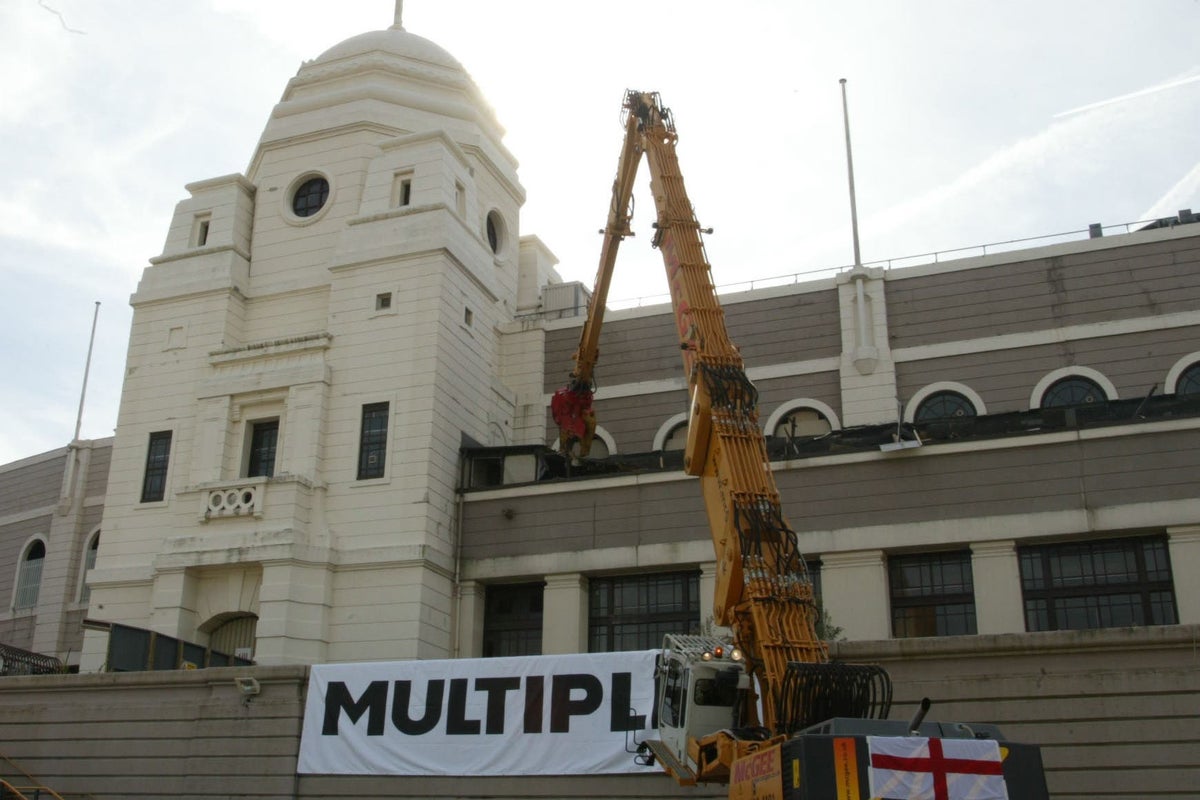
Bulldozers began demolishing the old Wembley on this day in 2002, marking the end of an era for one of the most famous stadiums in the world.
At 11.09am on a Monday morning a 35-ton bulldozer called Goliath slowly began to turn the north London home of English football into rubble.
Work began on the operations and press room – the corridor linking the Twin Towers – as the process of the old ground making way for a new national stadium started.
After being built in 1923 to mark the Empire Games, Wembley had hosted an array of sporting events and pop concerts, including the 1966 World Cup final won by England, and Live Aid.
The new 90,000-seater stadium was, at that point, scheduled to open in 2006.
Adam Crozier, the FA’s chief executive at the time, said: “It has been a long haul to reach a successful outcome.
“It is great news for everyone involved in football. Players and fans can now look forward to enjoying the facilities at what will be the best stadium in the world.”
George Cohen, a member of England’s 1966 World Cup winning team, came to see for himself the end of the old stadium, and he said: “It is very sad that Wembley has gone.
“But you get over it because everyone has memories. It is going to be replaced by a much better stadium.”
The new Wembley eventually opened in 2007, staging that year’s FA Cup final in May, in which Chelsea beat Manchester United 1-0 after extra-time thanks to a Didier Drogba goal.







